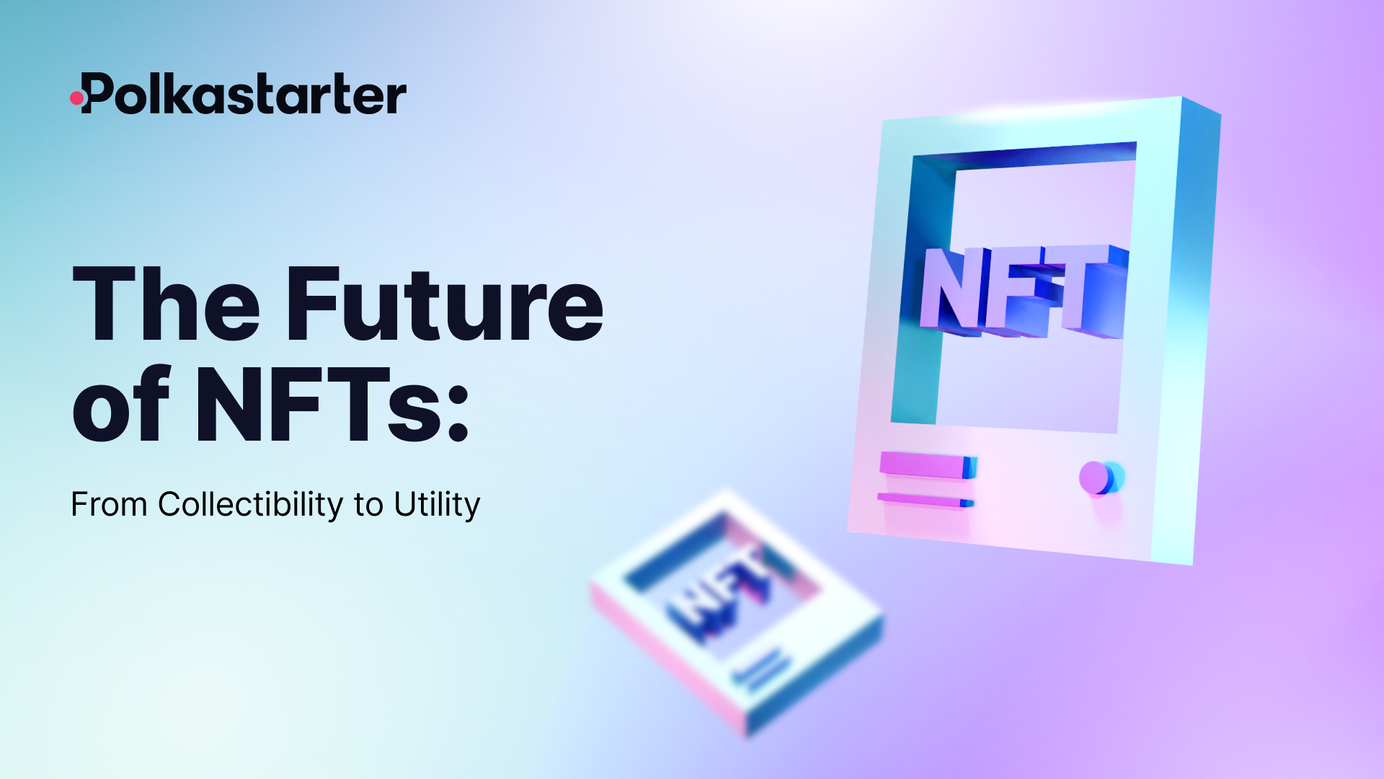
The Future of NFTs: From Collectibility to Utility
From hype to trend, to the future of tech – NFTs have already been through a lot but the best is yet to come.
“Can’t I just right-click on an image, download it on my computer and call it my NFT?” Yes, Non-Fungible Tokens (NFTs) have gone through the wringer the past 24 months with their worth and actual value still in doubt. What are NFTs? Why has the world gone berserk over Bored Apes or pixelated images of CryptoPunks?
Today, we draw the curtain and try to get to the bottom of the NFT craze, giving you a glimpse of what the future holds for the notorious technology that has captured headlines and the imagination of people around the globe.
Let’s get into it.
Behind the pictures - NFTs are a business power tool
Most people equate NFTs to art. Before attempting to visualize what the future holds, it’s important to understand why NFTs are so exciting for investors. What makes NFTs so interesting is not the art they have been so famously known for – it’s the underlying technology. Built on the blockchain, they are the best example of a nearly unhackable proof of digital ownership.
To use the example in our intro, yes, you can right-click on almost any image online and download it to your computer. That doesn’t make it yours. The excitement around NFTs is that people who own those pixelated images have unshakable proof that they are the proud owners of that asset, giving them the ability to price it and sell it. NFTs create the market dynamics we know as demand, supply and scarcity.
Taking that as our baseline, let’s now envision how NFT technology can go well beyond the art use case and impact businesses in ways that will shift the entire business landscape as we know it.
Real estate
The way things stand, some of the things holding back the real estate business are the bureaucracy, paperwork and logistics around it. For example, take the deed of a house. Every time there is a buy-sell scenario, the deed needs to be regenerated and re-signed. That takes time, prolonging buying cycles.
If the deed was turned to an NFT all changes would be recorded automatically, creating an audit trail of all participants, actions, steps and transactions. Not only would that expedite the process, but it would also eliminate any fears of forging house ownership.
Healthcare
Keeping track of your medical records is a logistical nightmare. So many different doctors, so many different visits at different points in your life. Wouldn’t it be amazing if all information could be gathered, stored and protected on a single platform? Enter NFT technology.
In an ideal world, there would be an NFT Birth Certificate issued to each newborn safely storing their medical records without compromising confidentiality or risking tampering from third parties. You would be the one and only owner of the ledger and you could authorize access to healthcare professionals if and when you deemed necessary.
Academic credentials
From CVs to Linkedin to NFTs. The next step in verifying your academic and professional credentials is around the corner. NFTs can act as the perfect way of proving attendance, a degree, or a course. All information is safely stored on the NFT chain and cannot be altered or hacked into.
Prospective employers will no longer ask for paper certificates, PDFs of your CV, or a portfolio. Everything will exist on the blockchain and your NFT will be enough to answer all of these questions.
Ticketing
Museums, trains, buses, airlines, basketball games, concerts – think of any activity that currently requires you to issue a ticket and make that an NFT. Less paper use, little to no opportunity for fraud and a much smoother experience for both businesses and consumers. Ticketing is one of the industries that will be redefined by NFT technology in the near future.
Digital commerce
Currently, e-commerce is dominated by the likes of Amazon, eBay and all the other commerce conlgomerates we trust for our purchases. The infusion of NFT technology in our life will co pletely change the e-commerce paradigm, puting power in the consumers’ hands, eliminating intermediaries. Let’s use an example to illustrate what we mean.
With NFT technology you will be able to make peer-to-peer transactions without the fear of fraud as everything will be transparently visible on the chain. There is even the possibility for fractional ownership of assets, opening the door a different market group.
Moreover, NFT brands will be able to drop unique quests within communities, reward loyal customers, enable referrals or get people to attend events.
The NFT future looks bright
To believe in the future of NFTs, we firstly need to understand and appreciate the utility and usability of technology. The list of possible use cases and projections is endless and there is no point in trying to predict what the future holds for NFTs. What’s more important to do is brace ourselves and our businesses for the inevitable change that will come sooner or later.
The potential of the technology is undeniable. What remains to be seen is how long it will take for people to build on the promise and capitalize on its advantages. The only thing we can be sure about is that we’ll be here to write about it and keep you in the loop. Stay tuned!
